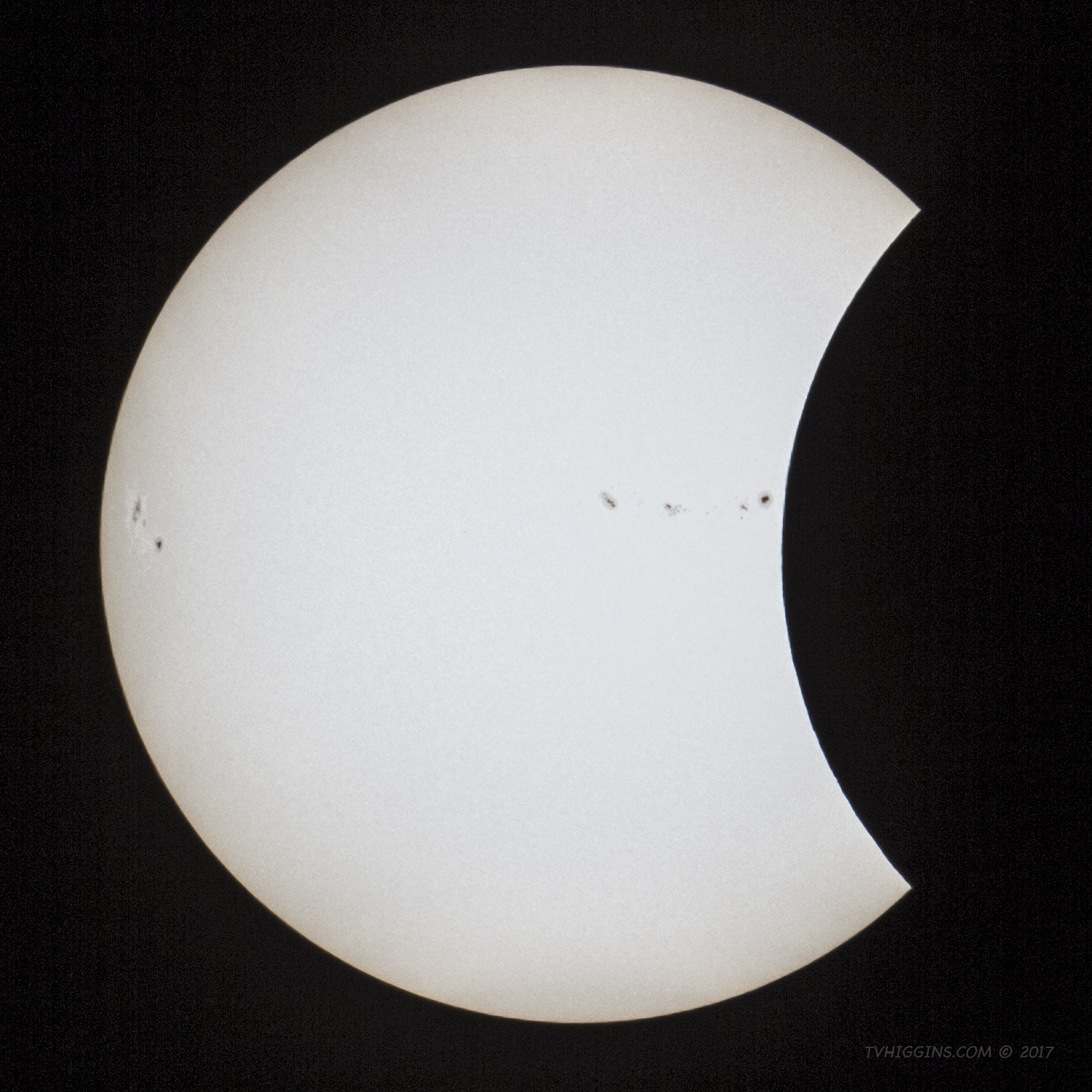- Telescope: Stellarvue SVA130T-IS
- Mount: Losmandy G-11 with Gemini 2 controller
- Autoguiding: No
- Optical Configuration: 0.72x field flattener & reducer (f/5)
- Camera: Canon 60Da
- Light Frames: Six single frames of partial phases and six subframes of total phase
- Calibration: None (no darks, no flats, no biases)
- Exposure Time(s): Partial phases = 1/5000 s; total phase = 1/500, 1/250, 1/125, 1/60, 1/30 & 1 s
- ISO: 100
- Processing: Photoshop CC
- Imaging Location: Prairie City, Ore.
A montage of images taken during the 2017 solar eclipse represents about two hours of the event from just after first contact (left) to just before fourth contact (right). As the moon’s silhouette moves from right to left across the solar disk, small sunspots are first masked and then unmasked. (To see the sunspots, click on thumbnail for a higher-resolution image.)
During totality, and only during totality, the sun’s faint corona becomes visible. Lunar features also appear during totality due to earthshine.


